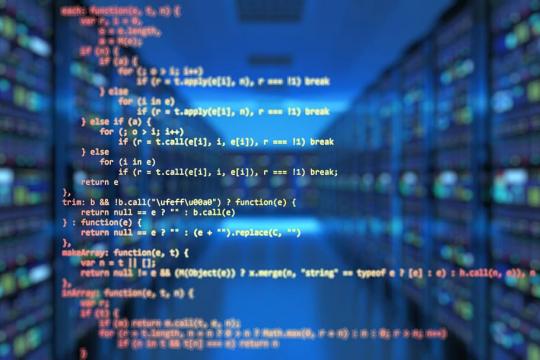
Given the publishing of the third volume of the Digital Data Encyclopedia (Licenza Creative Commons, 2022) on Friday, April 8 at 18.30 there will be a seminar titled “Artificial Intelligence Ethics. Digital data and equity”
Google Photos classified a picture of Afro-Americans as gorillas. Google Translate translates doctors as “dottore” and nurses as “inferior”. These two episodes seem to us social discrimination.
How are discriminations on the web and digital data born? Why aren’t the algorithms that classify and predict fair? What kind and how many discriminations can there be?
Carlo Batini, the author of the book and senior professor at the University of Milano-Bicocca will answer these and other questions during the online encounter.
Giulio De Petra, chief of the Centre for the State Reform, and Andrea Maurino, President of the Didactic coordination Council for the master’s degree in Data Science at the University of Milan-Bicocca will be the discussants.
A brief profile of the event protagonists
Carlo Batini is a senior professor at the University of Milan-Bicocca and a former professor at Rome “La Sapienza University”; he has also been the acting chairman of the Authority for Informatics in Public Administration. Furthermore, he has done research in the field of databases, conceptual modeling, and data quality and has written about fifty original books; six of them for the global market.
Giulio De Petra, digital innovation in public administration expert, has tried for many years to implement and transform the processes and services both in State central Administration and Public and Regional Administrations. At the moment, he is the Chief of the Centre for the State Reform, where he promoted and coordinates the project Critic School for the Digital; he is a member of the Diversity and Disequalities Forum and a fellow for Turin Polytechnique Nexa.
Andrea Maurino is a full professor of Informatics. His main research activity deals with data management with particular attention to data quality, open data, and semantics technology. He is the author of almost 100 articles for magazines and international conferences and has been the co-founder of two start-ups. At the moment, he is the Chief of the Didactics coordination Council for the master’s degree in Data Science.
Follow the event online
Enroll in the event through this link. You’ll receive an email with the info to enter Webex and interact with the speakers.
Read the books
Digital data encyclopedia:
- Volume 1- Data are a window into the world
- Volume 2- The data models help us to represent and comprehend the world
- Volume 3- Digital data ethics: equity.
Asilomar AI Principles (2017), vedi https://futureoflife.org/2017/08/11/ai-principles/
Solon Barocas, Moritz Hardt, Arvind Narayanan (2021). Fairness and Machine learning, Limitations and Opportunities, disponibile nel Web.
Carlo Batini, Federico Cabitza, Paolo Cherubini, Anna Ferrari, Roberto Masiero, Andrea Maurino, Matteo Palmonari, Fabio Stella (2020). La Scienza dei dati, pubblicato con licenza Creative Commons, liberamente scaricabile dal link https://boa.unimib.it/handle/10281/295980
Jamie Berryhill, Kévin Kok Heang, Rob Clogher, Keegan McBride (2019). “Hello, World: Artificial Intelligence and its Use in the Public Sector”. OECD Working Papers on Public Governance, No. 36.
Carlo Casalone, Luciano Floridi, Laura Palazzani, Renzo Pegoraro, Francesca Rossi, Roberto Villa (2021). “Human Centric AI: From Principles to Actionable and Shared Policies”. G20 Insights, September.
Pedro Domingos (2016). L'algoritmo definitivo. La macchina che impara da sola e il futuro del nostro mondo. Bollati Boringhieri.
Luciano Floridi, Federico Cabitza (2021). Intelligenza Artificiale, Bompiani.
Stephen Gaukroger (2012). Objectivity, A very short introduction. Oxford University Press.
Riccardo Guidotti, Anna Monreale, Salvatore Ruggieri, Franco Turini, Fosca Giannotti, Dino Pedreschi (2018). “A Survey of Methods for Explaining Black Box Models”. ACM Computing Surveys.
Deborah Hellman (2008). When Is Discrimination Wrong? Harvard University Press.
Shira Mitchell, Eric Potash, Solon Barocas, Alexander D’Amour, and Kristian Lum (2021). “Algorithmic Fairness: Choices, Assumptions, and Definitions”. Annual Review of Statistics, 159.
“OECD Framework for the Classification of AI Systems” (2022). OECD Digital Economy papers, No. 323.
Judea Pearl (2019). The Book of Why: The New Science of Cause and Effect, Penguin.
Frederick Schauer (2009). Profiles, Probabilities, and Stereotypes. Harvard University Press.
Stéphan Vincent-Lancrin and Reyer van der Vlies (2020). “Trustworthy artificial intelligence (AI) in education: promises and challenges”. OECD Education Working Paper, No. 218.
